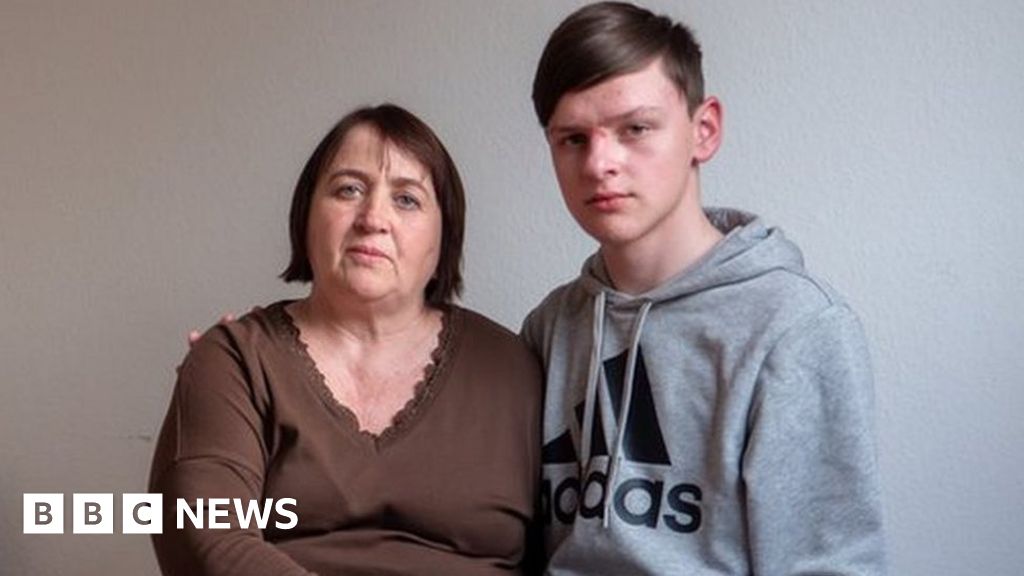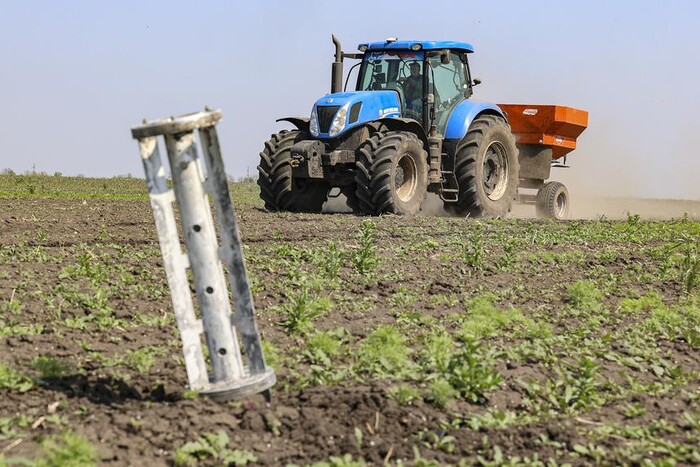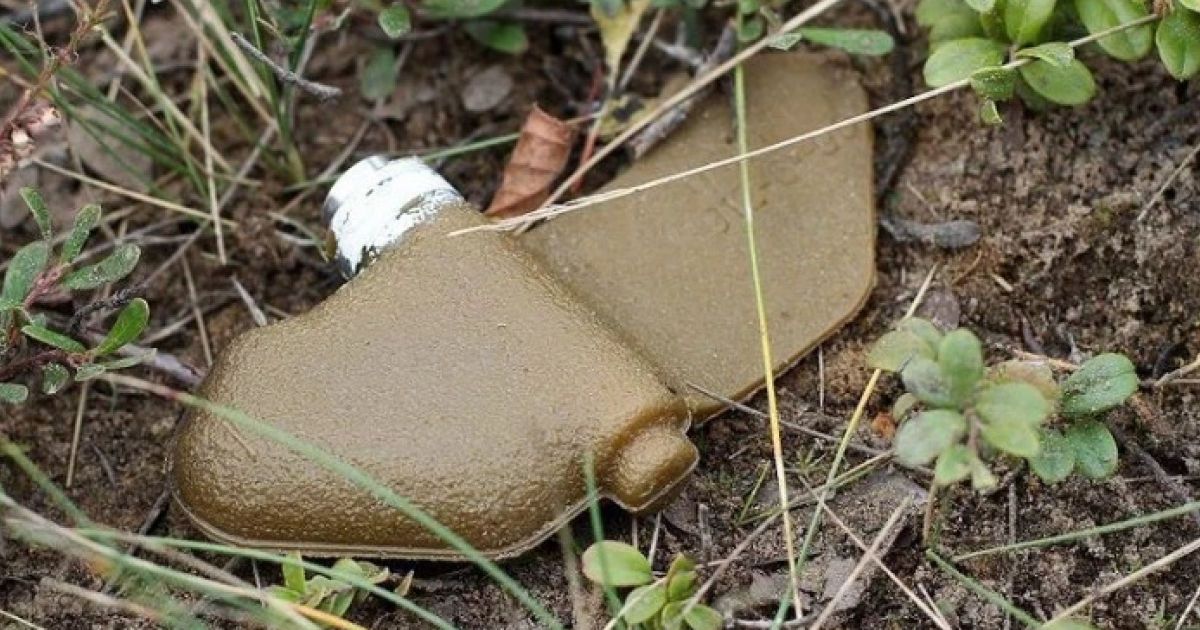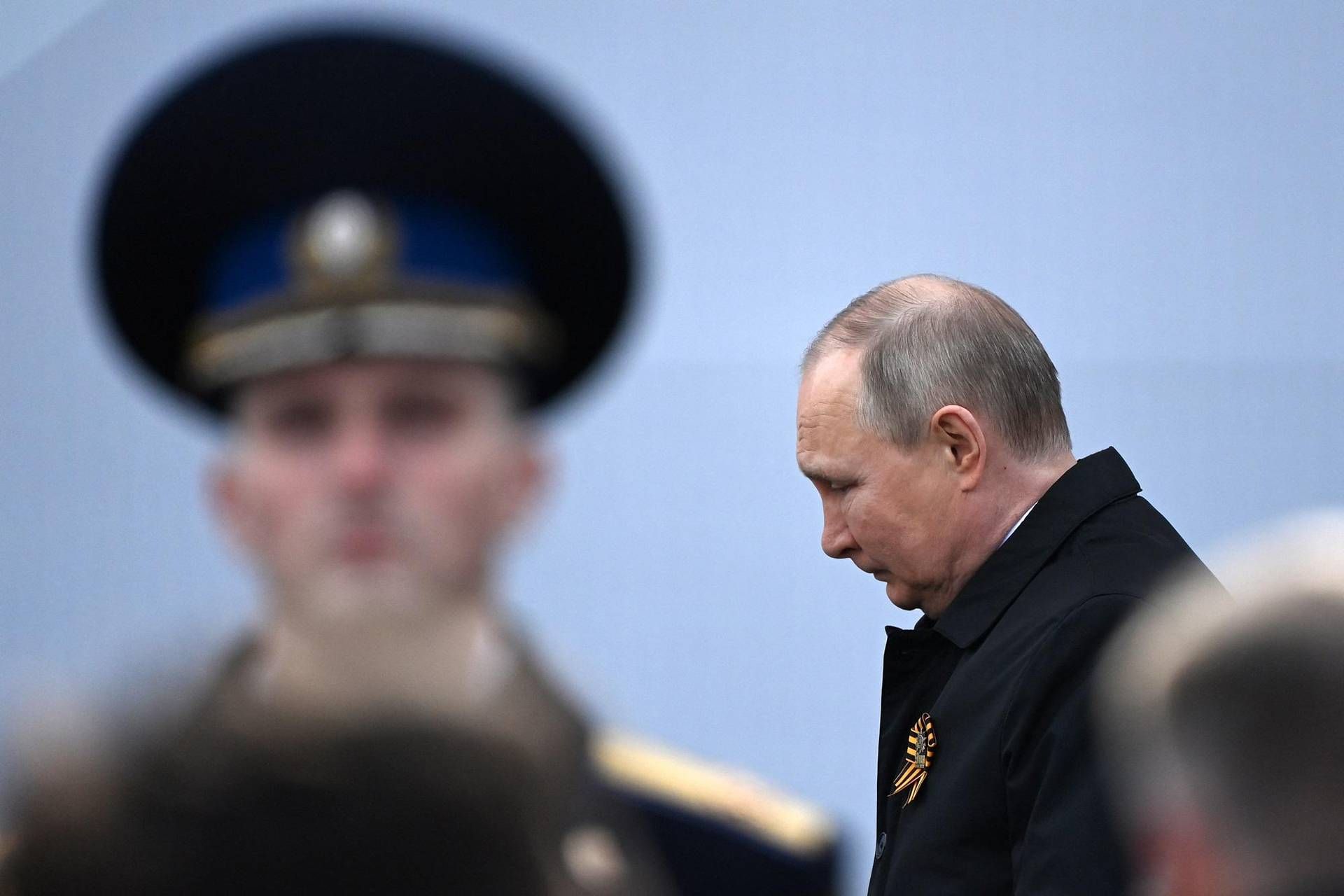usiamo il pacchettino di sanzioni e la russia si ritirerà,
Chi ha detto questo?
o del tipo a momenti finiscono i missili, o del tipo quelle cazzate assurde di prestigiosi e suntuosi apparati uk, come non ricordare le mitiche indiscrezioni ,degli inffalibili 007 britannici....prontamente ed entusiasticamente pompate dai media occidentali...
Nel quote si sono persi gli accenni, ma hai citato queste dichiarazioni:
Secondo Christopher Steel, il presidente russo non rimarrà al potere più di 'tre o sei mesi'

www.adnkronos.com
A me non interessano più di tanto le previsioni che si riducono ad un paio di affermazioni isolate e roboanti fatte durante un'intervista. I paper con un minimo di approfondimento e analisi mi interessano di più, perché la complessità della situazione li richiede. Per esempio il 3 luglio ne è uscito uno realizzato da un gruppo di lavoro del KSE Institute. Thread introduttivo:
Documento completo:
https://fsi9-prod.s3.us-west-1.amaz...rt_of_critical_components-7-3-2023_final5.pdf
Riporto alcune parti che mi interessano per risponderti sul "pacchettino di sanzioni" che presumo ritieni essere state sempre totalmente inutili. Insufficienti (o non più sufficienti) è diverso da totalmente e perennemente inutili, specialmente se parliamo di una dinamica in divenire dove si alternano mosse e contromosse (non è che la Russia resta inerte), altrimenti chiamo Revolver Ocelot per farti dire che hai un
pensiero binario che non riesce a contemplare vie di mezzo e pretende che tutto sia bianco o nero.
However, 16 months into the all-out invasion, Russia’s more advanced post-Soviet systems, such as missiles and sophisticated armored vehicles, are already in short supply. Cutting-edge military equipment, such as Armata tanks, have not been seen on the battlefield, despite the Russian authorities' claims of significant stockpiles. During the conflict, it also has become apparent that some types of weapons are not as modern and effective as their stated characteristics.
[...]
The combination of sanctions and the voluntary withdrawal of foreign businesses from Russia has significantly impacted the country’s capabilities to produce weapons and fund the war more generally, demonstrating that economic and diplomatic pressure can translate into tangible effects on a nation's military strength and performance. Notwithstanding the sanction-evasion strategies, smuggling practices, and attempts to substitute Western components with Russia`s own production, there is growing evidence of the impact of already implemented sanctions on Russia's military capabilities. In May 2023, Kyiv School of Economics (KSE), the Ukrainian Ministry of Defense, and the Jamestown Foundation estimated that as of June, Russia had only 12% of its Iskander 9M723 missiles, 11% of its Kalibr missiles, and 5% of its Kh-101 missiles remaining in its stockpiles. The International Institute for Strategic Studies (IISS)’s 2023 Military Balance estimated a drop in the number of modern main battle tanks in Russia by 50%.
Da una parte:
1. Reduced overall military capabilities. Due to the critical role of imported components in Russian military production, international sanctions are having an impact on Russia’s ability to manufacture key weapons systems, including armored vehicles, artillery, and missiles.
Dall'altra:
2. Russia continues to wage war on Ukraine. At the same time, Russia is clearly still able to produce key weapons systems. This is due to a combination of factors: (i) large stocks of key components; (ii) evasion of restrictions due to inconsistencies in export controls regimes; and (iii) sanctions violations and insufficient enforcement.
Da una parte:
3. Some high-tech inputs are missing. Although Russia appears to have found ways to acquire many important inputs, they are not necessarily of the same quality and may also cost more. Thus, the lack of specific high-tech components has emerged as a major constraint.
Dall'altra:
4. Western components are still appearing in Russian weapons. We rely on the analysis of Russian weaponry captured on the battlefield – in total, 58 pieces of equipment, ranging from missiles and drones to armored vehicles and artillery – and find 1,057 individual foreign components with microchips and processors still used in manufacturing these weapons.
Da una parte:
7. Initial indications in the first quarter of 2023 indicate a deceleration. For a subset of critical components, we find that Russian imports declined in the first quarter of 2023 (see Box 1) – by 14% compared to the last quarter of 2022. This could indicate growing challenges regarding their acquisition – or more successful efforts to conceal transactions.
Dall'altra:
8. Acquisition of Western goods via third countries. We find that products of several specific companies in sanctions coalition countries continue to be shipped to Russia, mainly via China but also via Hong Kong and Turkey. In fact, imports from this subset have fully recovered in value terms.
Il secondo capitolo è
II. Russia’s Military Capabilities in 2023 (da pag. 9 del PDF, vedere anche le figure per i mezzi, per i depositi e per la produzione di missili). Alcuni estratti sui missili e conclusione del capitolo:
However, some researchers are more positive about the effectiveness of sanctions. The Center for Strategic and International Studies (CSIS) writes in a report that shortages of certain higher-end components are forcing the Russian Ministry of Defense to substitute them with lower-quality alternatives.7 These findings are based on usage patterns of Russian military equipment on the battlefield, for example, the use of less effective missiles outside of their intended purpose (for example, the use of the S-300, originally designed as a surface-to-air missile, in a surface-to-surface role). Overall, CSIS points to the following components, whose lack impedes Russian military production: advanced optical systems, bearings, engines, and microchips.
[...]
2. Artillery Russia’s military appears to encounter difficulties with the supply of artillery shells. The number of artillery rounds fired per day is down sharply – around 75% – from last summer, when the Russian military fired 40,000-50,000 rounds per day in the Donbas region.15 However, remaining stocks are considerable, even if some are old and less reliable. Russia has already depleted ammunition stockpiles from Belarus, which is a further indicator that a renewed large-scale offensive from Belarussian territory is unlikely in the coming months.
[...]
3. Missiles The intensity of missile attacks on the territory of Ukraine (critical infrastructure and civil and residential buildings) had decreased earlier in 2023. However, since the beginning of May, Russia has conducted constant attacks on civilian infrastructure with missiles and drones in response to the counteroffensive of the Ukrainian Armed Forces. For this purpose, Russia is trying to ramp up production (see Figure 2) and reportedly is seeking to buy missiles from North Korea as well as additional drones from Iran, which are much lower cost in comparison. The use of some missiles in an unorthodox fashion is a further indication for equipment constraints (see Figure 3). For example, attacks on the territory of Ukraine have been conducted using S-400 (and S300) missiles, which were originally designed as air defense weapons – and are extremely imprecise when being used to hit targets on the ground. Another sign of the serious lack of cruise missiles in Russia’s arsenal is the quick use of newly produced missile systems. Militaries prefer to use older missiles in stock before they use missiles produced more recently. The analysis of debris has shown that Russia has used cruise missiles in recent attacks that were produced in the first three months of 2023 – suggesting extremely low stocks.16
[...]
In conclusion, Russia’s military capacity seems to be impacted most by rapid usage and extraordinary losses on the battlefield. Given its inability to increase production significantly in the short term and limited access to some critical components, Russia is currently unable to rebuild its stocks fast enough to replace weapons that is has expended. However, due to the unprecedented scope of military and dualuse goods export controls, the effect should have been more pronounced. We believe that this indicates that restrictions may be violated and/or circumvented. To be able to identify specific issues associated with the export controls regime, we undertake a detailed analysis of trade with goods that we consider to be “critical”.
Quindi che finora siano state totalmente inutili penso sia falso, mentre che si potesse e si possa agire meglio... è possibile.
Ok, non hanno ancora finito e dice che tra le altre cose mancano ancora il tetto dei reattori delle unità 3 e 4 (quella delle immagini satellitari mostrate da Mark Krutov), più parti della sala delle turbine. Per quel che vale, aggiungo le dichiarazioni di Budanov uscite ieri:
Ukraine's military spy chief said on Thursday that the threat of a Russian attack on the vast Zaporizhzhia nuclear plant was receding, but that it could easily return as long as the facility remained under occupation by Moscow's forces.

www.reuters.com
Ma soprattutto, visto che è un argomento delicato, ci terrei a fare presente i tweet del thread dell'Avvocato dell'Atomo che ho inserito nell'altro post, nel caso qualcuno se li fosse persi in mezzo ai link:
Ad eccezione magari di quel "gli ucraini vogliono sollecitare intervento NATO", che mi sembra rispecchiare una sua interpretazione incompatibile per esempio con le parole di Kuleba su La7.
Secondo l'Avvocato, i russi potrebbero comunque danneggiare la centrale a sufficienza da renderla inutilizzabile per sempre (dare un'occhiata anche al tweet di Ponomarenko che ha quotato):
Prendo atto che la lingua italiana non è per tutti.
Per "evidenza" ho inteso l'insieme di evento oggettivo (che ok, tu non metti in dubbio) più deduzioni logiche, e quelle di Nomen a mio avviso lo sono. E ti ho chiesto perché tu le ritieni invece illogiche. Perché è questo ciò che pensi a riguardo, giusto? E se vuoi dirla, qual è la tua interpretazione degli stessi eventi. Ti ascolto.




 Quindi Putin aveva sicuramente un'idea e degli obiettivi a inizio guerra, noi possiamo fare solo supposizioni dato che non siamo nella sua testa ne' in quella dei suoi generali, ma l'evidenza porta a pensare che volesse conquistare Kiev velocemente a Febbraio 2022. Sono proprio curioso di sentire come giustificheresti l'attacco a Hostomel etc che ho delineato in un mio post precedente, se secondo te non e' questo il caso
Quindi Putin aveva sicuramente un'idea e degli obiettivi a inizio guerra, noi possiamo fare solo supposizioni dato che non siamo nella sua testa ne' in quella dei suoi generali, ma l'evidenza porta a pensare che volesse conquistare Kiev velocemente a Febbraio 2022. Sono proprio curioso di sentire come giustificheresti l'attacco a Hostomel etc che ho delineato in un mio post precedente, se secondo te non e' questo il caso



/cloudfront-us-east-2.images.arcpublishing.com/reuters/HTOJAW7XDNJSNOMB6S2PKHC7UQ.jpg)
